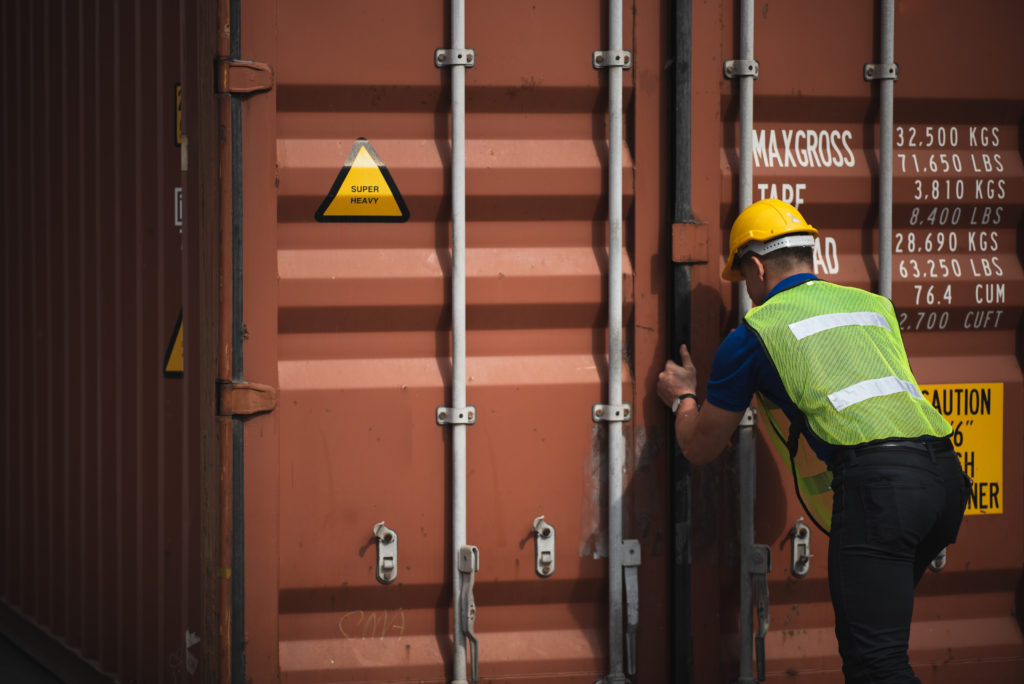How is COVID Impacting International Car Shipping?

At Brief Overview
The COVID19 pandemic has had a global effect. Lockdowns, stay-at-home orders, and social distancing mandates have changed the way people interact with one another. It’s also slowed down production rates, and no industry has been left untouched. The car shipping industry has encountered shipping delays related to disruptions in supply changes according to data collected by the Center for Automotive Research. Though shippers and manufacturers are doing their best to play catchup, you may still encounter higher costs and delays when shipping a car overseas.
There have been many factors, big and small, that have impacted international car shipping, each of which was caused by COVID. Below you’ll find a general table detailing how is COVID impacting international car shipping in the first six months compared to now.
| Issues COVID Has Caused | Effects in the First Six Months of the Pandemic | Current Day Effects |
| Lockdowns | Cities, states, and countries were on lockdown. Car shipping carriers are not able to ship cars to other countries. | Countries are reopening, but there are now higher importing duties and taxes as a result of the import/export imbalance |
| Import / Export Restrictions | Countries establish what items they are importing and exporting during the pandemic. International car shipping is reduced and/or halted. | International car shipping is resuming a moral normal schedule. The cost of shipping a car has increased as a result of the pandemic. |
| Fluctuating Gas Prices | With people staying home, the price of gas lowers. But, the halt to international car shipping does not let customers take advantage of this price. | The price of gas has risen. It’s caused the cost of shipping a car to rise. |
| Job Loss / Unemployment | The pandemic causes massive job loss and unemployment. There are fewer people to fulfill international car shipping orders. | The unemployment rate has decreased. More people are returning to work. International car shipping resumes. |
| Added Safety Mandates | The added safety mandates reduce production rates. International car shipping is directly affected. | The vaccine increases work safety and work performance. International car shipping frequency increases. |
| Decreased Car Production | Vehicle production was stopped for the first six months of the pandemic. No new cars are made or shipped. | Consumer demands cause car manufacturers to resume car production. Cars are made and shipped internationally again. |
| Increased Workload | Unemployment and job loss create increased workloads for international car shipping carriers who are employed and still shipping cars. | More people return to work thanks to the vaccine. Workloads are still high, but there are more people to work and reach shipping goals. |
| Supply Shortages | The pandemic causes supply shortages across the globe. International car shipping is reduced. | The global economy begins to go back to normal. International car shipping occurs more regularly. |

The Pandemic’s Initial Effect on International Car Shipping
At this time, the COVID pandemic is becoming more manageable. There’s an increased amount of people who are getting vaccinated and society is becoming more normal again.
But, in previous months, and when the pandemic first began, there was a global response. Cities, states, and countries all went into lockdown. This occurred as a safety measure to keep people alive.
The effect of this lockdown also affected international car shipping. Many of the ships that would usually be traveling from country to country didn’t. They stayed at their main shipping port. Other vessels tried to enter other countries but were turned away. Countries did what they felt best to protect themselves and their people.
The end result was that cars weren’t able to be shipped as regularly, or at all, at the beginning of the pandemic. Then, later on, when it became easier to travel the open seas, there was a backlog of cars needing to be shipped. The demand for shipping cars was increasing, but due to the pandemic, it became more difficult to meet demands.
COVID Safety Mandates
When the global pandemic started, a lot of people lost their jobs, and a lot of people quit their jobs. But, beyond that, the way people worked with each other underwent a large change. Safety mandates were put into effect and required people to wear masks to remain six feet apart from each other. Because of the different tasks that are involved with shipping a car from one country to another, the loss of workers, and normal work routines slowed the pace of international car shipping.

COVID Stay at Home Orders Affect Prices
When countries and states put stay-at-home orders into effect, the price of shipping a car went up. Shipping carriers had fewer workers to get cars ready for shipment. There were also more precautions that needed to be taken in order for a car to be shipped from one port to the next. Stay at home orders also lowered the full amount of services that shipping carriers could offer to their customers.
The entire globe had their mind focused on staying safe. Businesses suffered and sometimes closed. The international car shipping industry was no different.
Job Losses, Decreased Production, and Price Increases
As alluded to earlier, job losses played a large role in affecting the ability of the international car shipping industry to go with business as usual. With smaller staffs, it’s become harder for carriers to meet larger demands
But, it isn’t only the loss of employees that’s caused international shipping prices to rise. The decisions made by automotive companies have also affected the international car shipping industry. Many automakers shut down their plants entirely at the beginning of the pandemic in order to keep themselves and their staff safe.
The pandemic caused fewer cars to be made around the world.
Higher Gas Prices
Though the beginning of the pandemic saw a decrease in gas prices, as the economy has continued to stabilize, gas prices have continued to rise. The increase in gas prices is causing a large fluctuation in international car shipping prices.
Rebounding Car Demand
In the second half of the pandemic car demands and production has started to rebound. As the COVID virus started to get more under control, people felt comfortable returning to work. The return to work also helped people resume the normal activity of making money, spending money, and purchasing cars.
With more of the concerns about the pandemic resolved by the vaccine, more people felt comfortable going back to work. The global virus hadn’t stopped the workday, it’d only paused it while humanity found a way to protect against the virus.
Balancing Supply and Demand
The issues international car shipping faced during the pandemic were not fully resolved when people started going back to work. Yes, the borders were starting to reopen and cars were being shipped again. But there have also been complications.
Because of the pause that was put on the global shipping market, there have been times when a company could make more exporting empty boxes, than trying to import vehicles. The pandemic caused a global shortage of shipping containers, which is one of the primary ways that cars are shipped across seas.
Some carriers have been faced with the decision to either continue shipping cars or decide to sell their shipping container units to China for a profit.
Another issue that arose from the pandemic is the ability to maintain a balance between supply and demand. Because of the inactivity that occurred during the first half of the pandemic, many of the cars slated for shipment remained docked at port. Since normal shipping has resumed, there’s been more work than some carriers are able to handle.
This article provided by VOA News provides further insights into the current issues countries are encountering with balancing supply and demand issues.

Rising Import Prices
Another factor that has caused changes in international car shipping is the rising importing prices. COVID has caused the entire world to change. One of the greatest changes that have occurred has been the increase in prices of different items and services. Because COVID caused a shipping backlog, the globe is undergoing different shortages. These shortages are causing certain items to be needed more than others. The seas are staying very active and to offset the costs, countries are raising their prices until they are able to normalize their ability to both import and export goods and services.
The rising import prices for international car shipping have had two different effects. There are those who are willing to pay the higher prices as long as they are able to get their car imported, but there are also others who are rethinking international car shipping because of the additional costs they are being made to pay.
Supply Shortages
COVID has affected the international car shipping industry in a variety of different ways. As alluded to in the section above, certain items have been produced or received, by certain countries. Shortages, oftentimes, are easy to resolve. But one of the most prominent shortages caused by the pandemic is the “chip shortage.”
Chips are used in the vast majority of modern tech items, including cars. Because of the chip shortage, there are many cars that cannot be fully built. This issue has caused for people to not be able to buy particular vehicles. Until the chips are received, the cars remain incomplete, and cannot be purchased or shipped internationally.
Increased Workloads
Something else that has occurred due to the pandemic is the increased workloads of car shipping carriers. Every carrier is doing the best it can to meet the demands. But, even working as hard as they do, customers should expect delays.
COVID Causes for Containers to be Unloaded, but Not Shipped Back
As mentioned earlier, the pandemic caused a global shortage of shipping containers. The issue caused some countries to be willing to pay for empty containers. But, something else that occurred was that certain ships and containers were staying docked at the port because they had nothing to send back. This issue caused a number of ships to remain unused during a time when the ships could have been used to help resolve the import/export imbalance taking place across the globe.
Ships Take Longer Routes as a COVID Precautionary Measure
Increased safety precautions have been another one of the key factors negatively affecting international car shipping. When the pandemic first began, ships that were en route to their final destination took longer routes as precautionary measures. They did this so they were not jeopardizing their lives.
COVID Causes An Overflow of Cars Needing to be Shipped
Another issue that’s been caused by the COVID pandemic is the overflow of cars being produced and ready for shipment. Now that supply, demand, and shipping schedules are regulated, there’s a higher amount of cars needing to be shipped than vessels available to ship them. This overflow is keeping international car shipping carriers busy but is also being met with continuing uncertainty about how long it will take for supply and demand to balance out.

Pandemic Changed What Cargo Gets Shipped
When the pandemic occurred, the shipping industry temporarily changed. Certain items were given precedence over others. The items being imported and exported to countries had to do with helping each country survive a lockdown. International car shipping was put on hold.
It hasn’t been until recently that international car shipping has resumed a more normal flow. Automakers are resuming the production of cars in response to consumer demands. Activity is getting back to normal, but international car shipping is still experiencing delays. These delays are being caused by the shortages of certain items.
COVID Causes Shifts in Supply Chain
The pandemic has also created a shift in supply chains. With a decrease in cars being made, and more companies shifting toward telework, there has not been as much focus being put on the importance of vehicles. Supply chains have seen an increased demand for people who want to create home offices. Their attention is less on vehicles, and more on personal comforts they can experience at home.
These changes in perception have led to some people driving less altogether. This shifting attitude toward the automotive industry, paired with a decrease in car production, has shifted people’s attitudes toward international car shipping. With chip shortages and rising costs for importing cars, people have thought less about the car shipping industry.
Geopolitics and Economic Factors Caused by COVID
COVID has also brought attention to geopolitics and economic factors that have, in turn, affected international car shipping. The lockdowns, stay-at-home orders, and resurgence of xenophobia have made people see countries in a different light. Whereas people in the past were excited to travel to different countries and ship cars, more and more people have felt scared and defensive. The idea of entering into a different country is more than just knowing their culture. People are now questioning their position on the global pandemic and whether or not they support the vaccine. These thoughts weren’t a concern before COVID occurred.
Conclusion
After reading this post you’ve learned the initial effects COVID had on the international car shipping industry as well as the effects COVID continues to have. The pandemic had both direct and indirect effects. The pandemic has caused job loss and issues with car production. It’s also resulted in higher import costs, shipping delays, and new geopolitical conversations about how lockdowns affect supply, demand, imports, and exports.
 +1 (908) 436-2150
+1 (908) 436-2150


